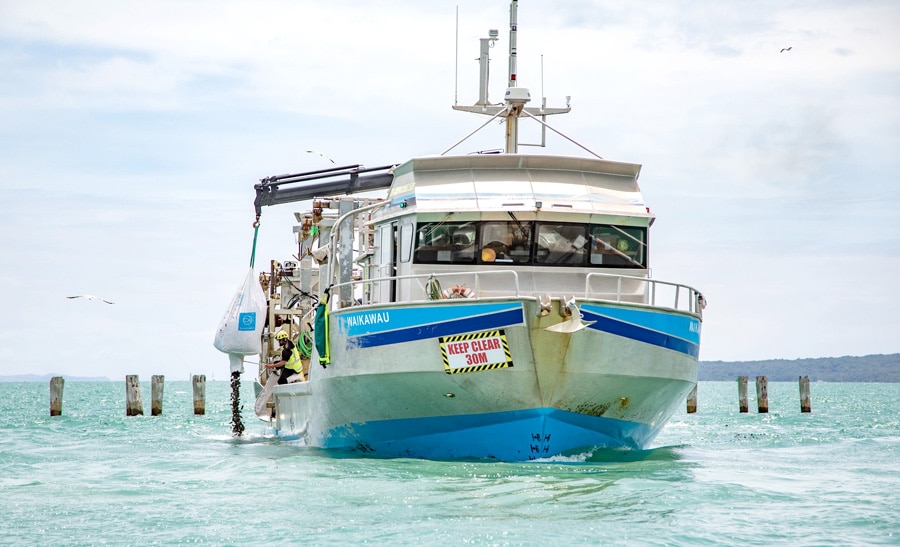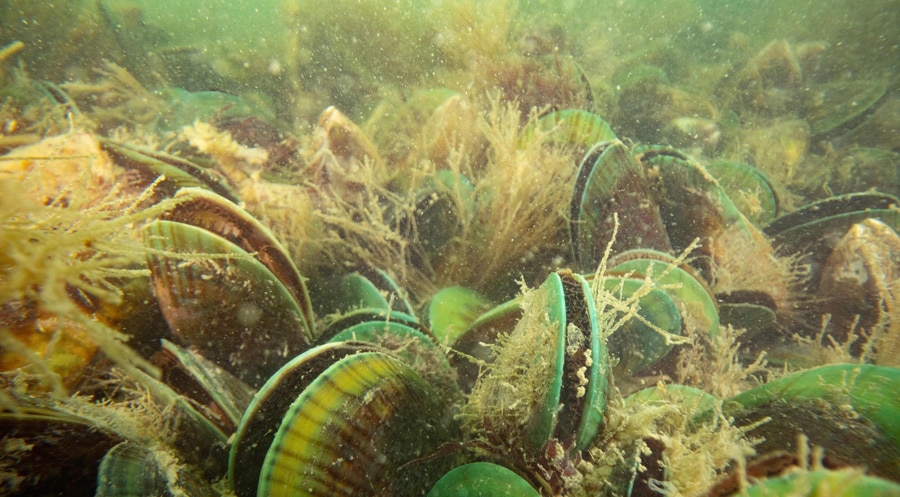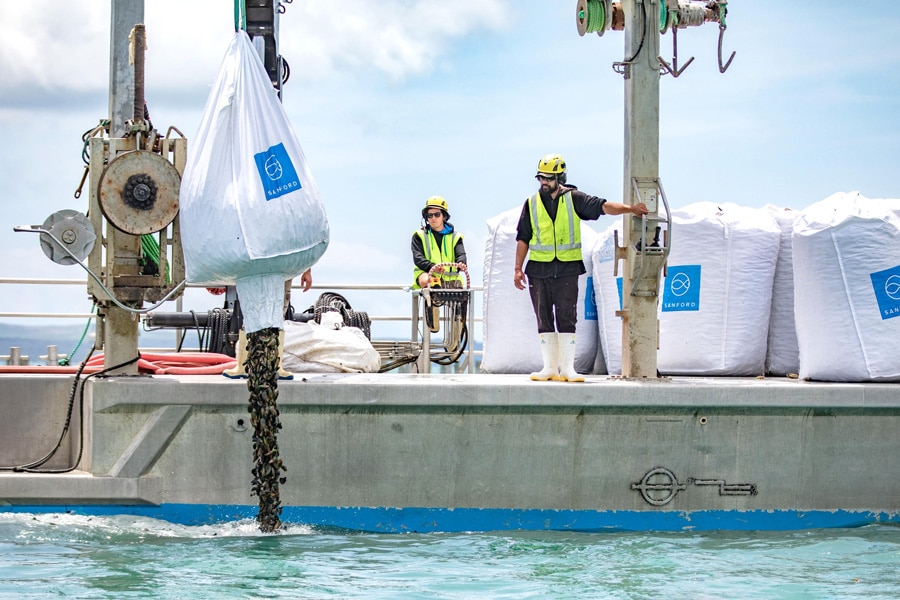As part of our continued commitment to sustainability, we have teamed up with Revive the Gulf, a restoration project founded and run by The Mussel Reef Restoration Trust, backed with research by the University of Auckland. As ‘Gulf Guardians’, we are privileged to support their pioneering work to restore the biodiversity of the Hauraki Gulf Marine Park/Ko te Pātaka kai o Tīkapa Moana.

We are a proud Tamaki Makaurau based business, and like most Aucklanders we have a love and connection to the sea. The Hauraki Gulf is an incredibly important part of Auckland’s identity, and the health of the gulf has immense impacts on the overall liveability and wellbeing of the city.
A lot of us have also grown up hearing stories from parents or grandparents of the past abundance and beauty of the Gulf, and so we were excited at the opportunity to help contribute to restoring its former glory.
Stretching along New Zealand’s east coast, from Auckland to Waikato, the Hauraki Gulf encompasses 1.2 million hectares of ocean, including over 50 islands. In 2000, it was declared a marine park to protect its myriad natural and historic features.
However, the gulf has suffered from a steady decline in the variety of its marine life since the early 1900s, resulting in an overall reduction of 45% of its fish biomass.
Over the last decade, the trust has been planting new green-lipped mussel/kuku beds on the gulf’s seafloor to replace those lost through various human activities, such as dredging and overharvesting.

Why mussels you may ask?
These ‘kidneys of the sea’ have an extraordinary ability to purify water. One mussel can pump between 150 to 350 litres of water a day. This process reduces sediment while filtering out heavy metals such as excess nitrogen and harmful bacteria, resulting in cleaner, clearer water. They also further reduce sediment as they knit together by anchor threads, carpeting the seafloor and preventing the reanimation of sediment.

Once established, these mussel beds have become a sanctuary for marine life attracted by the healthier water. The Department of Conservation has documented a noticeable increase in fish and invertebrate activity as a result, including the return of kingfish, juvenile snappers and mackerel.
Since the project started in 2013, the trust has deposited an incredible 150 tonnes of mussels. The trust also provides educational resources to local businesses and schools. To aid easier deployment and long-term sustainability of its projects, the trust is an advocate for less bureaucratic biosecurity protocols and benthic protection.

We are very much aware of the pollutants and plastics involved in manufacturing processes and we believe that we have a duty of care to help safeguard our environment for both present and future generations. While we accept that we are at the start of our sustainability journey, we are privileged to be able to help activate change and are proud of the role, no matter how small, that we can play in protecting our precious environs.